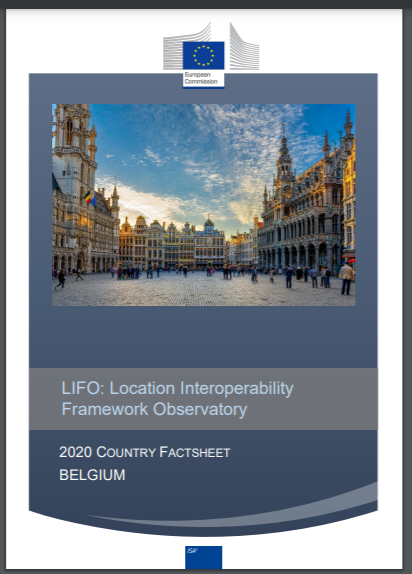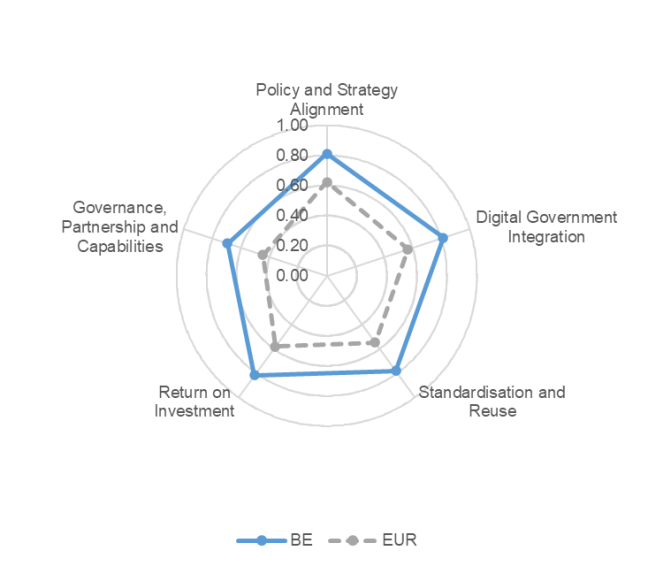



The Location Interoperability Framework Observatory (LIFO) monitors the implementation of location interoperability good practices in European public administrations, based on the level of adoption of recommendations in the EULF Blueprint.
The overview of 2020 location interoperability status in Belgium is based on the information provided by CC INSPIRE (INSPIRE Coordination Committee)
The information collected through the LIFO 2020 data collection indicates that Belgium scores above the European average across all the five focus areas assessed.
Policy and Strategy Alignment” is an area of particular strength for Belgium, where the country reached the highest of all five focus area index scores. The high score can be attributed to the extensive alignment between digital and location strategies, the availability of a wide range of location core reference datasets for general use, and the good level of preparedness of organisations for the GDPR.
Another of Belgium’s strengths lies in the “Digital Government Integration” focus area, which has the largest edge over the European average. The factors that have contributed to Belgium’s positive performance are the integration of location information in the production of location-based statistics; an extensive adoption of a collaborative approach in developing location digital services; a rigorous approach to both service improvement and take-up of opportunities for new businesses/delivery models.
Belgium also obtains a very positive result in the “Return on Investment” focus area. Two main factors have contributed to this result, firstly, the extensive and consistent set of actions to facilitate the use of public administrations’ location data by non-governmental actors, and, secondly, the effective communication of the benefits of integrating and using location information in digital public services.
The “Standardisation and Reuse” focus area scores well above the European average, although with the lowest margin, due to the adoption of a common architecture to develop digital government solutions and a well-organised approach to monitoring, testing, and upscaling of new technological developments.
There is a mix of very good and less positive results across the “Governance, Partnerships and Capabilities” focus area. The former lies in the strong joint decision making mechanisms on the role of the SDI in digital transformation and in a large number of formal agreements between public authorities to finance location data services and digital public services. The latter concerns the lack of agreements with the private sector or with public administrations of other countries to build and operate location-enabled services.
Belgium has participated also in LIFO 2019. For the 2019 factsheet, click here.
The value of the overall LIFO index combining the scores for all focus areas is 0.78, which reflects Belgium’s very good performance in terms of location interoperability. This compares with a European average of 0.55.

For more details, download the factsheet in the attachment section below.
Click here to find out more about the Location Interoperability Framework Observatory (LIFO)
Click here to explore the LIFO 2020 and 2019 results in the LIFO Interactive Dashboards